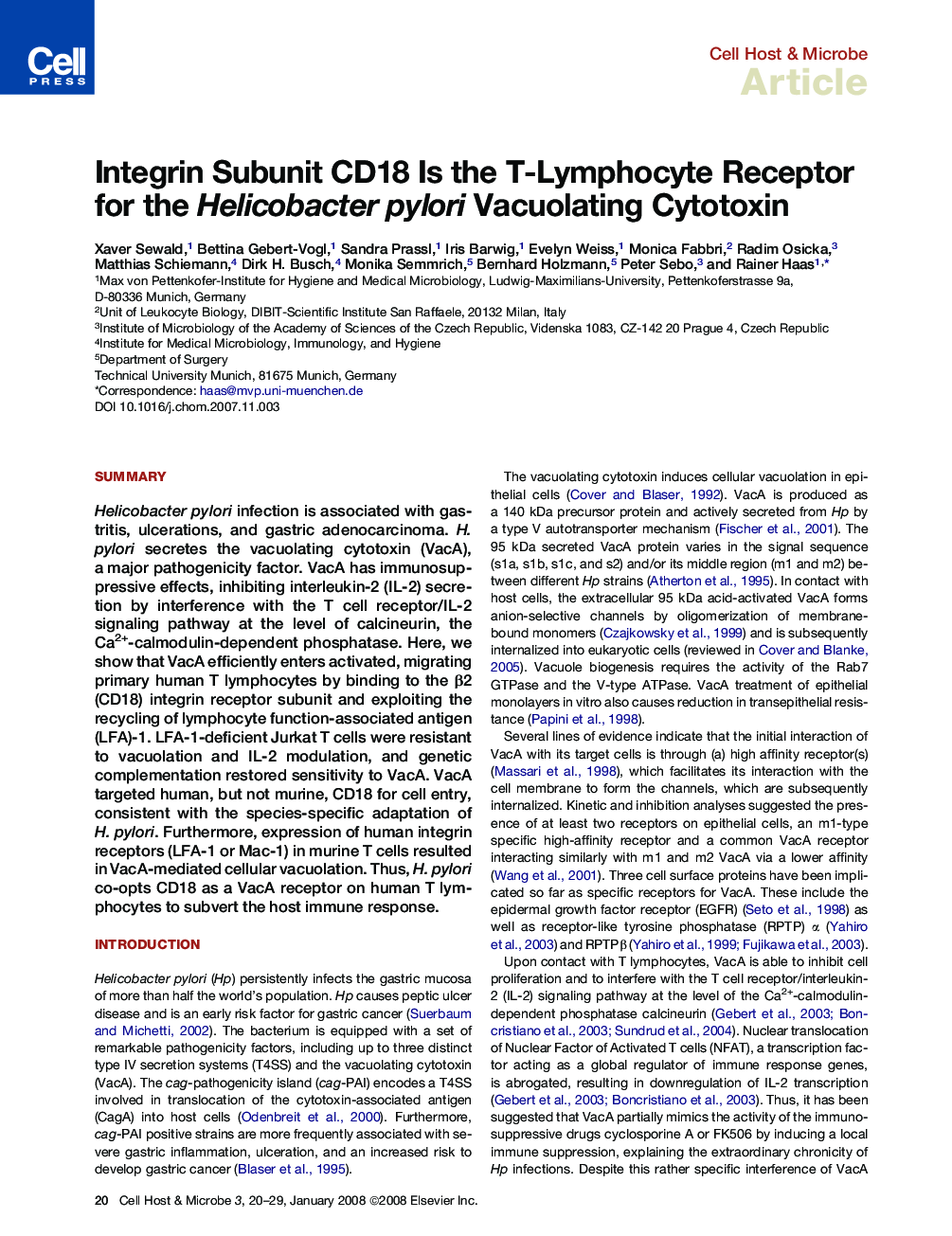| Article ID | Journal | Published Year | Pages | File Type |
|---|---|---|---|---|
| 4361543 | Cell Host & Microbe | 2008 | 10 Pages |
SummaryHelicobacter pylori infection is associated with gastritis, ulcerations, and gastric adenocarcinoma. H. pylori secretes the vacuolating cytotoxin (VacA), a major pathogenicity factor. VacA has immunosuppressive effects, inhibiting interleukin-2 (IL-2) secretion by interference with the T cell receptor/IL-2 signaling pathway at the level of calcineurin, the Ca2+-calmodulin-dependent phosphatase. Here, we show that VacA efficiently enters activated, migrating primary human T lymphocytes by binding to the β2 (CD18) integrin receptor subunit and exploiting the recycling of lymphocyte function-associated antigen (LFA)-1. LFA-1-deficient Jurkat T cells were resistant to vacuolation and IL-2 modulation, and genetic complementation restored sensitivity to VacA. VacA targeted human, but not murine, CD18 for cell entry, consistent with the species-specific adaptation of H. pylori. Furthermore, expression of human integrin receptors (LFA-1 or Mac-1) in murine T cells resulted in VacA-mediated cellular vacuolation. Thus, H. pylori co-opts CD18 as a VacA receptor on human T lymphocytes to subvert the host immune response.
